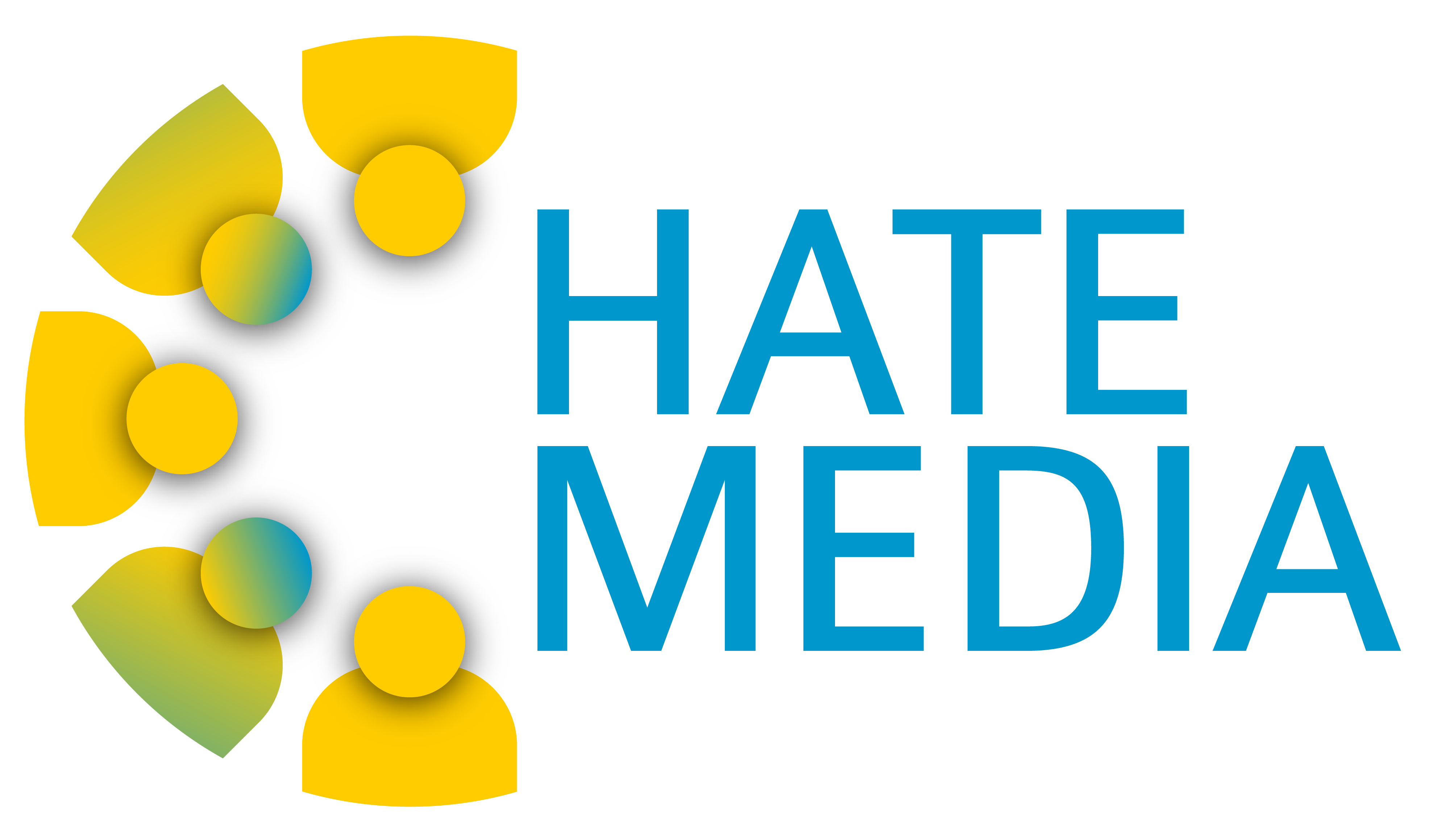Taxonomía, presencia e intensidad de las expresiones de odio en entornos digitales vinculados a los medios informativos profesionales españoles – Hatemedia.
Call ECREA Pre-Conference
News Media, disinformation, and hate speech’s promotion (Closed)
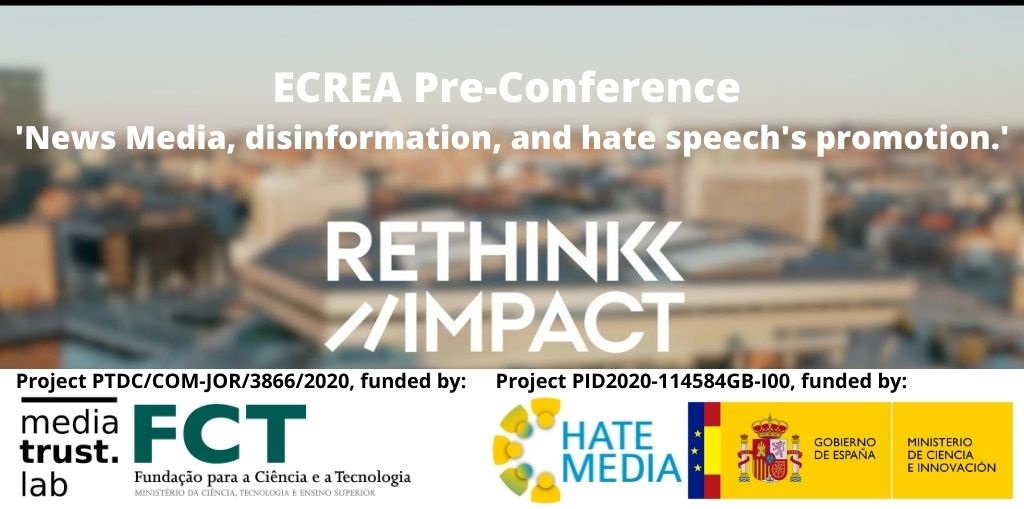
Call for Chapter
New book edition News Media and Hate Speech Promotion in Mediterranean Countries (Closed)

All proposals should be submitted through the eEditorial Discovery® online submission manager.
More info: elias.said@unir.net
Llamado de artículos Número especial Icono14 'Expresiones de Odio, Medios Digitales y Procesos de Detección' (Open)
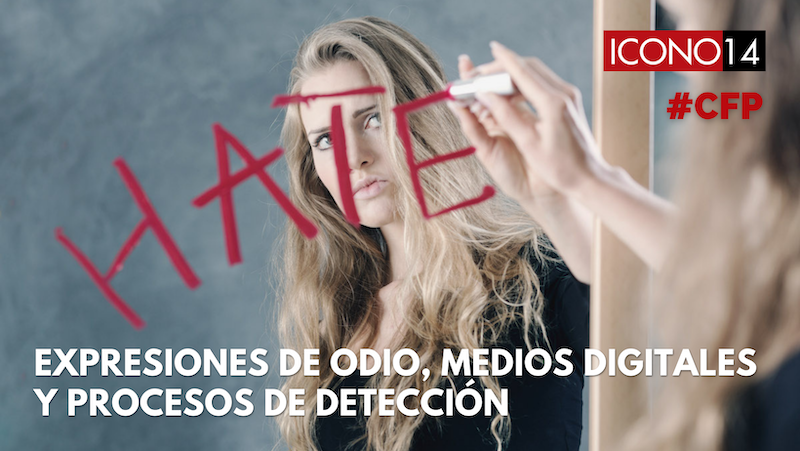
En el contexto de la Web 2.0 la expresión de opiniones, hechos, verdades y disconformidad forman parte de la comunicación masiva, la cual supone la salvaguarda de la libertad de expresión (Wagner & Marusek, 2019). Aunque esto ha supuesto la apertura de oportunidades para dar voz a la gente en el mundo digital, el discurso de odio y la desinformación han encontrado un medio ideal de difusión masiva e incremental. A través de la red se pueden amplificar discursos cargados de violencia y hostilidad, atacando a personas o grupos por motivos de ideología, raza, nacionalidad, edad, religión, género, orientación sexual y otras características o estatus personales.
Más información: tamaanto@ucm.es / nmayago@ucm.es / jasmina.djordjevic@filfak.ni.ac.rs.
Journalism Practice – Call Special Issue
The role of news media in promoting hate speech (Closed)
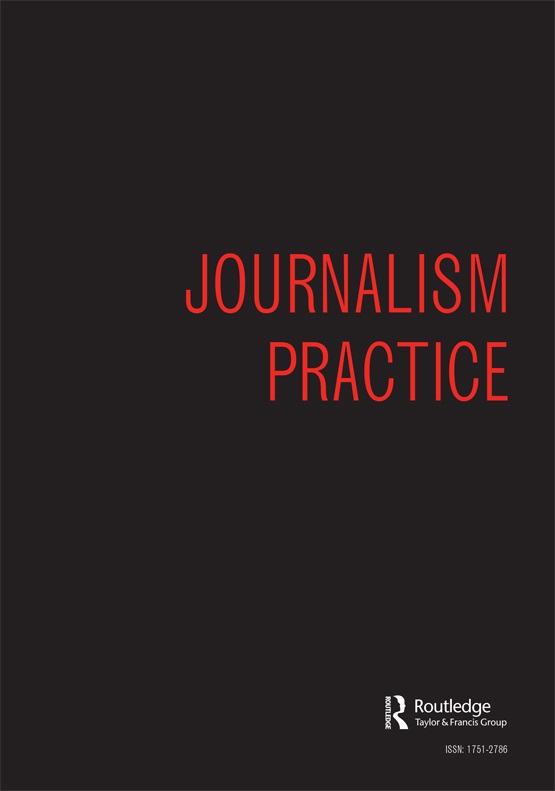
This special issue of Journalism Practice looks at how hate speech spreads in environments associated with the news media. A phenomenon that in recent years has gained more significant interest, both socially and academically. The main objective of this special issue is to develop a set of studies and policies that allow us to understand and identify cases, mechanisms, and theoretical approaches that focus their attention on the practice of journalism, new narratives, and new communication scenarios that for journalistic practice and the detection of hate speech from and through digital news media.
Llamado de artículos
Comunicar 80 (2024-3): Cibercultura, Identidad y diversidad: videojuegos online y aprendizajes digitales (Open)
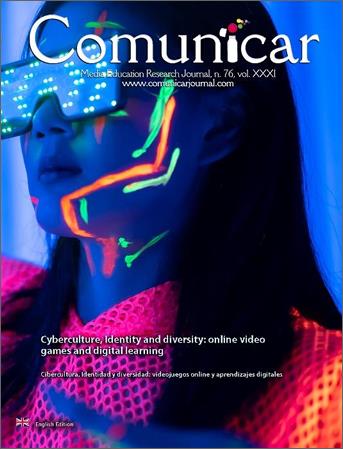
El acceso a Internet y las TIC son factores determinantes y actuales en la vida de los jóvenes. Se ha constatado que entre las actividades cotidianas más frecuentes que realizan los jóvenes están las relacionadas con el uso de la red en entornos digitales. Sin embargo, la experiencia no siempre es positiva; como señalan algunos estudios recientes, el acoso más tradicional ha saltado al mundo digital hasta el punto de que el número de casos es casi el mismo. En este contexto, nos encontramos con una industria floreciente y en crecimiento. Este nicho de negocio (empresas de videojuegos y empresas especializadas en entornos digitales actuales como las redes sociales) dedica importantes recursos no sólo al diseño de experiencias de juego basadas en la gamificación y la cooperación online que permiten a sus usuarios (muchos de ellos jóvenes) compartir, competir y disfrutar de emociones en un vasto mundo virtual. La violencia en los videojuegos y en los entornos digitales actuales ha sido un controvertido tema de debate público durante décadas. Con este monográfico, pretendemos profundizar en el conocimiento de las realidades y experiencias de los usuarios de plataformas online y redes sociales, especialmente a nivel infantil y juvenil, sobre las interacciones dentro de un espacio social masculinizado. Este número especial se centra en las posibles manifestaciones de odio y violencia vividas en este contexto y en los propios espacios y situaciones de juego desde una perspectiva de género e interseccional en el análisis. Por ello, el objetivo central es explorar los posibles impactos que los juegos online y los entornos digitales multijugador generan en la infancia, adolescencia y juventud, prestando especial interés a la existencia de discursos de odio, sesgos identitarios y de género.
Más información: elias.said@unir.net / roberto.moreno@uclm.es
Call for papers Special Issue en Social Inclusion ' Violence, Hate Speech, and Gender Bias: Challenges to an Inclusive Digital Environment' (Open)

The growth of Internet access, ICTs, and social media have contributed in a blatant and well-documented way to how people communicate and relate to one another in contemporary society. The general perception of “the public sphere” is changing: How relationships between individuals are established and maintained, and—more importantly—how they influence processes of social inclusion and exclusion are, increasingly, at the mercy of an amorphous, often unrestrained, and ever-changing digital environment. This thematic issue proposes to address some of the most prominent risks and repercussions of this transformation to social cohesion and individual well-being.
By navigating the realities and experiences of users (and especially young users) from a myriad of online platforms/digital spaces, we want to tackle how the proliferation of hate speech and identity/gender biases is increasingly made easier in the “virtual world” (see, e.g., Paz et al., 2021; Piñeiro-Otero & Martínez-Rolán, 2021), fueling tensions and conflicts that transpire into “non-digital reality,” inciting real violent behaviours and, ultimately, endangering worldly accepted values of social cohesion and inclusion.
The adaptability of young users to online platforms is notorious, if not sometimes taken for granted. Even more “sheltered” spaces like online video games emphasise and capitalize, more and more, on their “social character” (see the case of multiplayer online games, or MMOs). But what are the social implications and impacts of a hostile digital environment on childhood/adolescence and youth? Digital experiences are a flourishing industry; yet what is being made to challenge and face the rising cases of bullying, harassment, and violence that such experiences instil? What mechanisms are at society’s disposal to mitigate these problems? What tools are being/could be used in shaping a more inclusive society in the virtual sphere and how can we promote more positive narratives from within the digital world?
More info: mwalter@ucjc.edu
